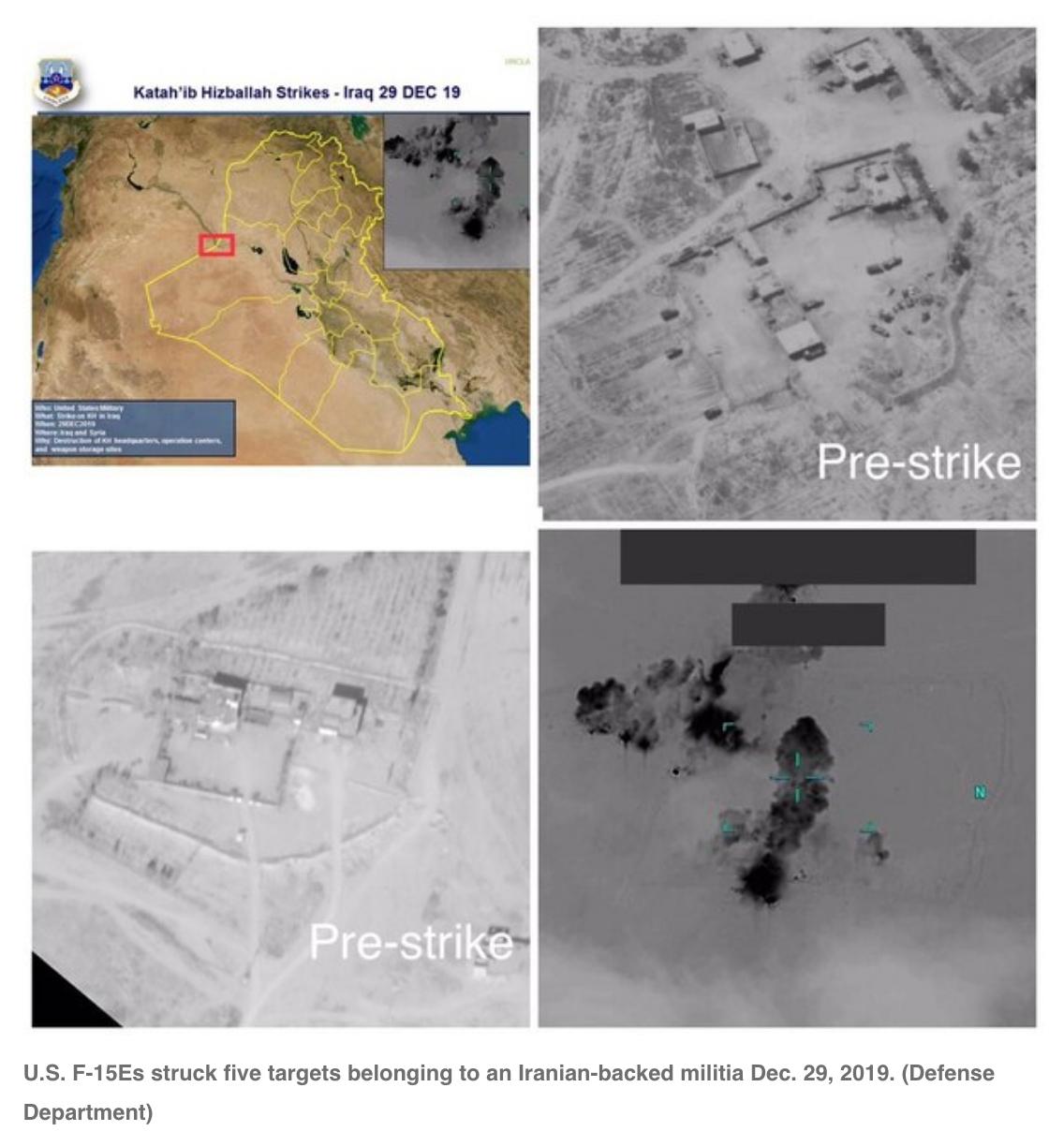
The Wall Street Journal reported that Badr al-Ziyadi, a member of Iraq’s parliament who is also part of a coalition close to powerful Shia cleric Moqtada al-Sadr, has called for an end to the agreement that keeps American troops in the country.
Sadr, whose militias fought and killed U.S. troops for years following the American-led invasion of Iraq in 2003, said Monday that he will work with Iran-backed militias to end the U.S. presence in Iraq through legal means, but noted that he will “take other actions” if that strategy fails, according to a Reuters’ story.
Sadr has called on Iranian-backed militias in Iraq to halt “irresponsible actions,” Reuters reported.
U.S. forces struck five Kata’ib Hizbollah targets on Sunday, according to a Pentagon news release, in retaliation for a Friday attack on an Iraqi coalition base in Kirkuk that killed one U.S. civilian and injured four American troops.
Kata’ib Hizbollah is an Iran-backed militia that U.S. officials have blamed for a series of rocket attacks against Iraqi bases housing U.S. troops. There have been 11 attacks targeting coalition installations over the last two months.
The locations of the U.S. airstrikes Sunday — three in Iraq and two in Syria — included storage facilities and command-and-control centers that the Iran-backed group uses to carry out attacks, Pentagon spokesman Jonathan Hoffman said in the release.
Secretary of Defense Mark Esper said Sunday during a press conference held at President Donald Trump’s Mar-a-Lago property in Florida that the strikes were carried out by F-15E Strike Eagles.
The Wall Street Journal reported that Esper phoned Iraqi Prime Minister Adel Abdul-Mahdi about a half an hour before the strikes and said that U.S. forces were about to bomb the Iran-backed militia.
Abdul-Mahdi asked for the U.S. to call off the strikes, according to the Wall Street Journal story.
“We consider it a violation of Iraqi sovereignty and a dangerous escalation that will threaten Iraq and the region,” Gen. Abdul Kareem Khalaf, a spokesman for the Iraqi prime minister, quoted Abdul-Mahdi as saying, according to the Wall Street Journal.